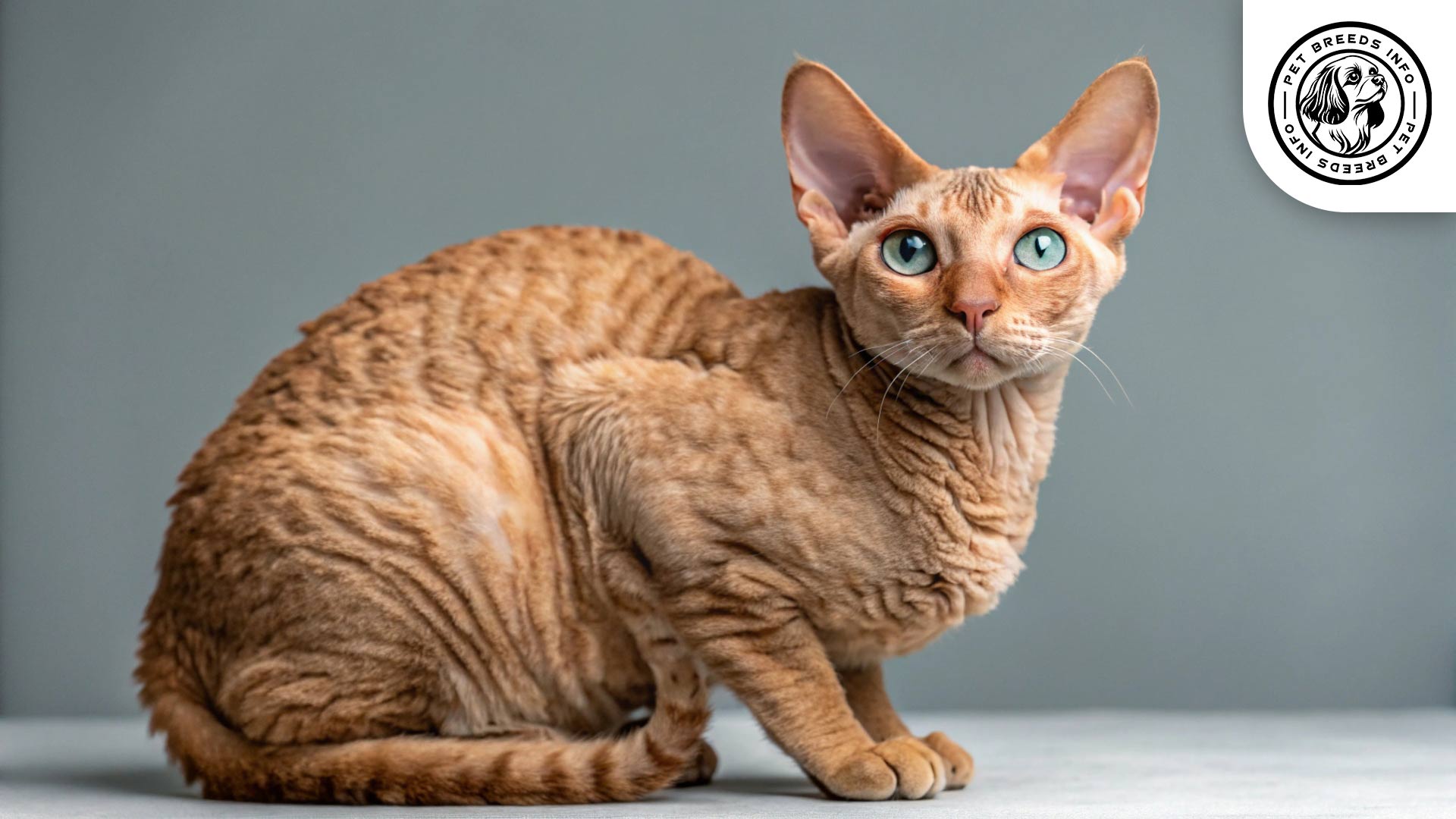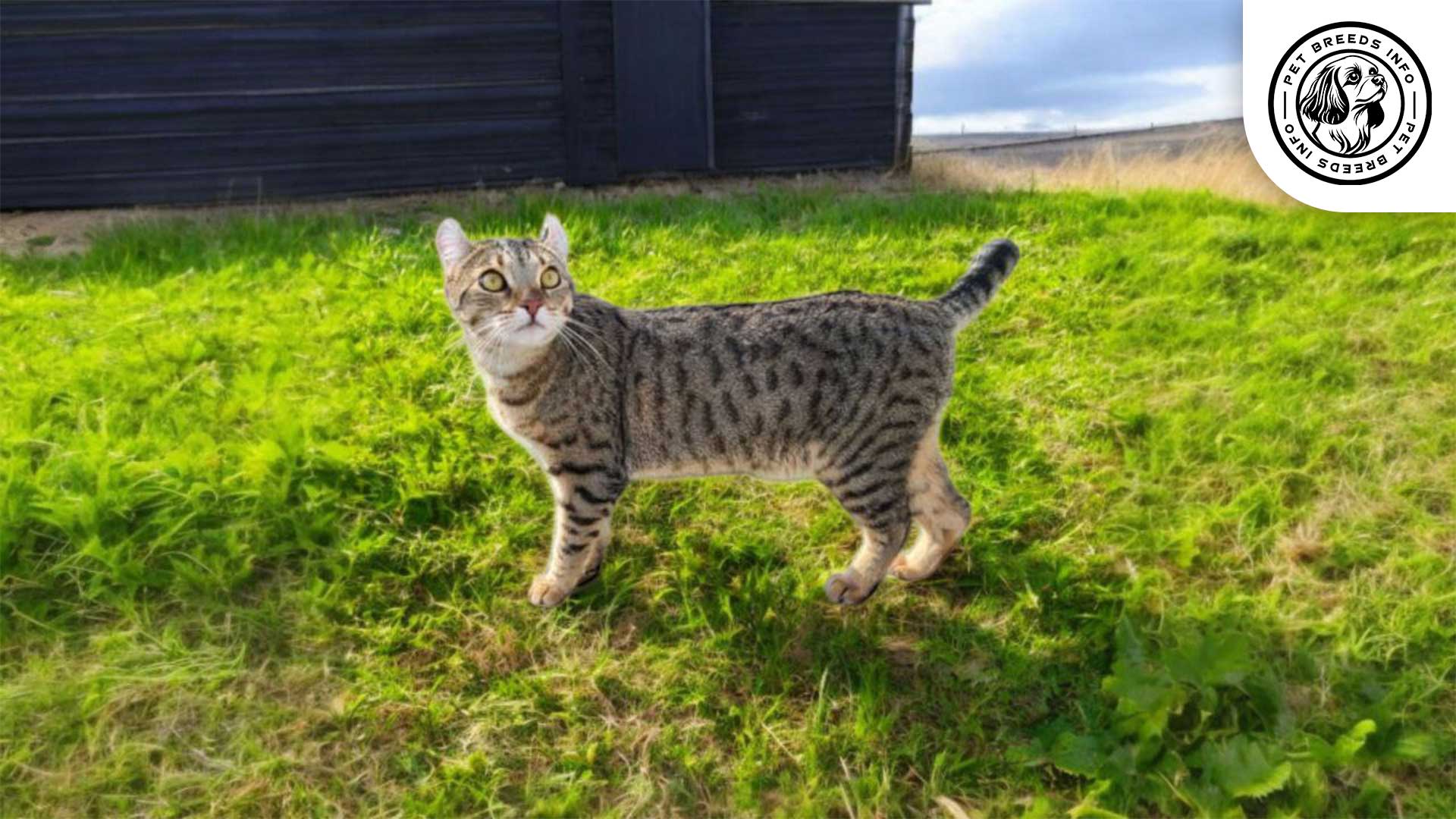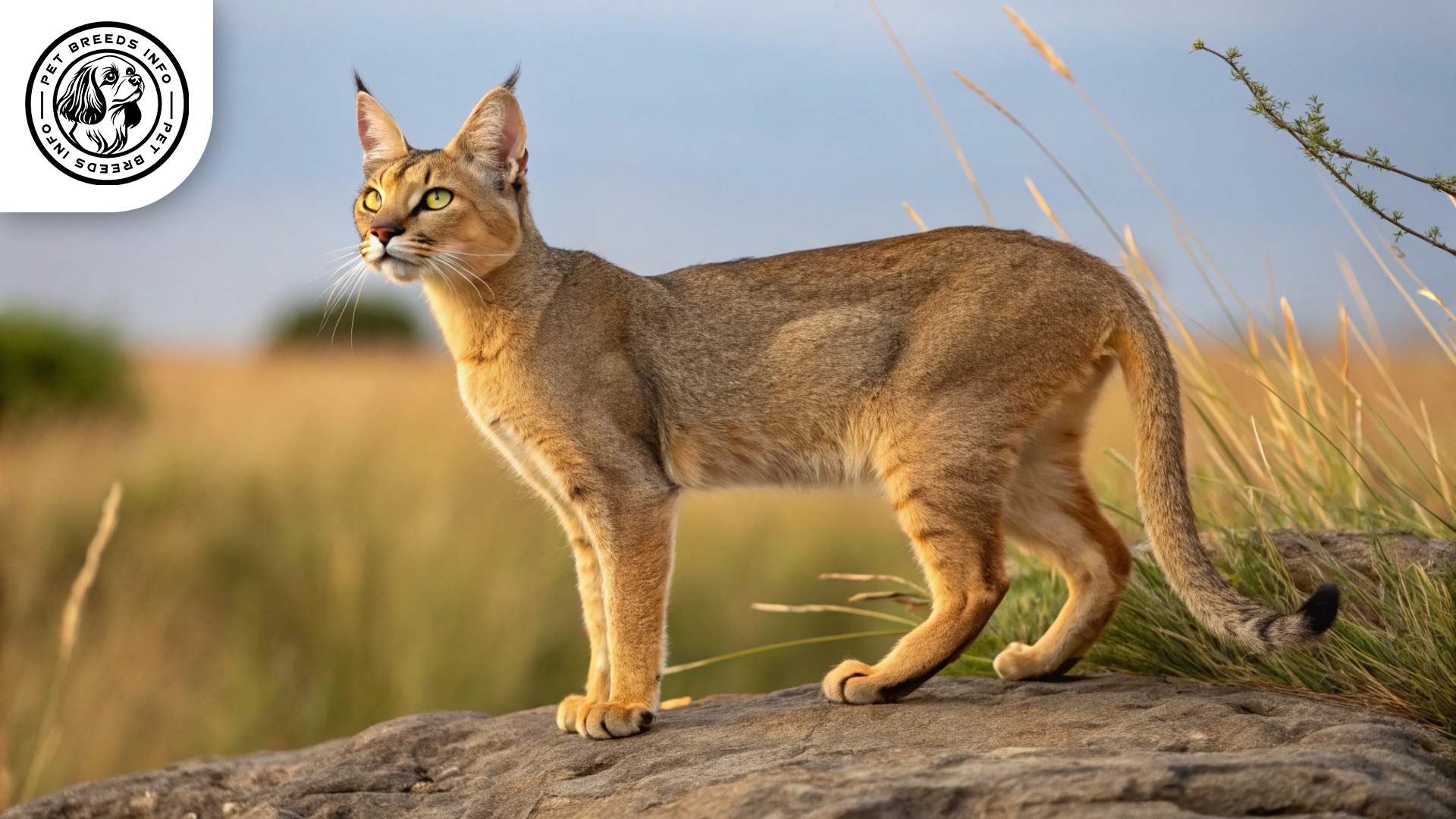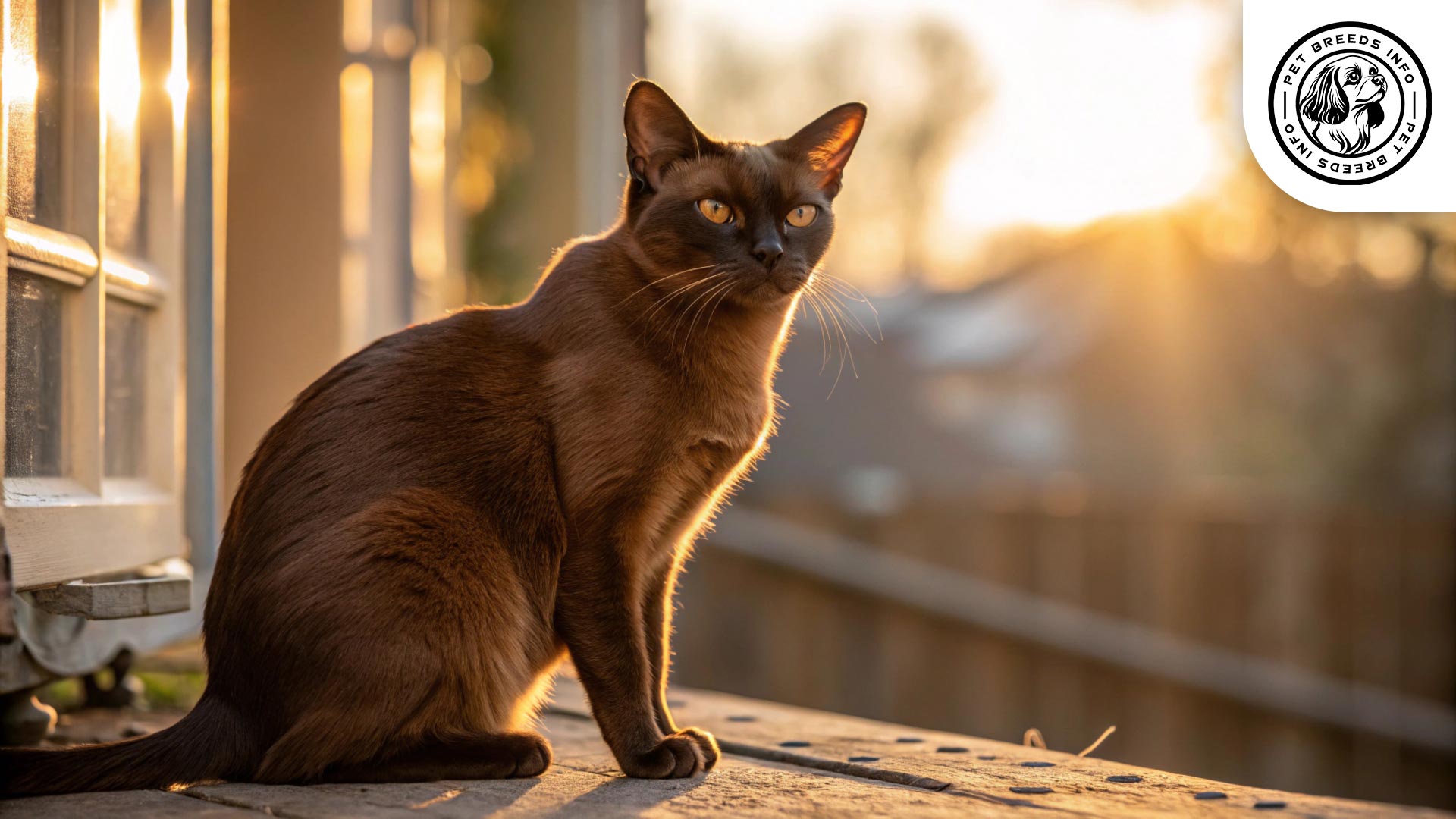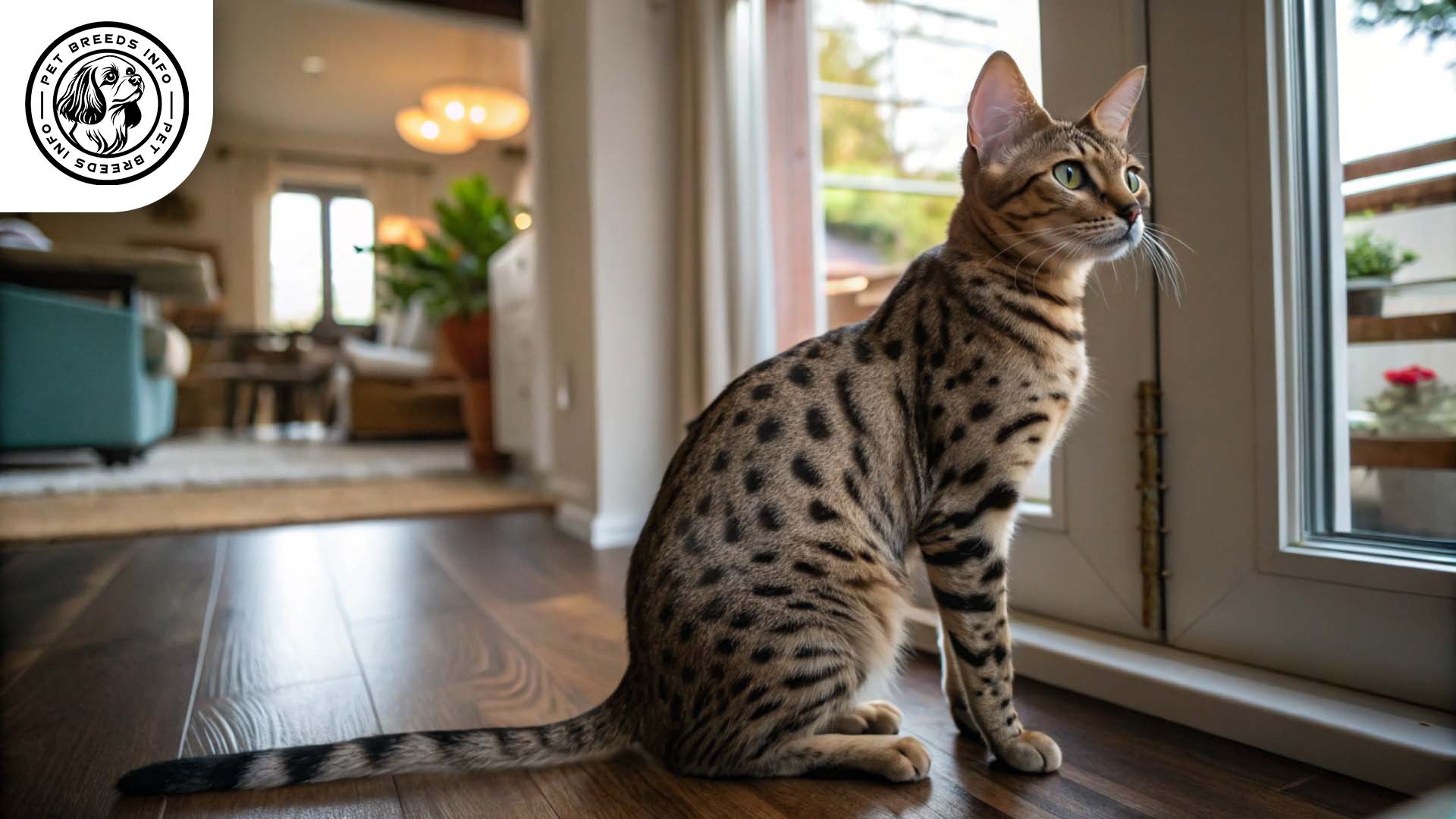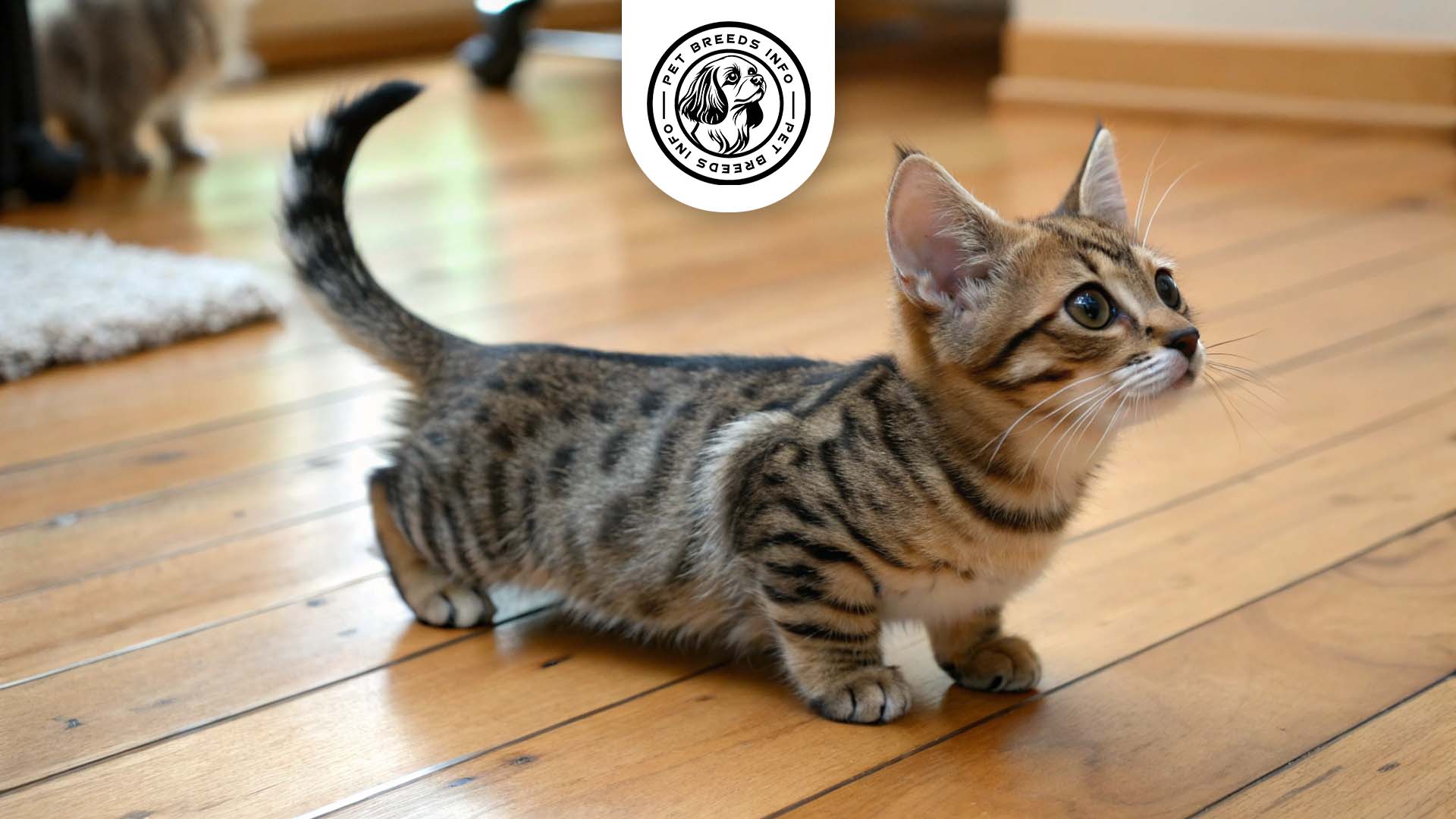German Rex Cat Breed: Size, Health, Price & Personality
General Introduction of the Breed
The German Rex is a unique and rare cat breed known for its curly coat and affectionate nature. In German, it is also called “Deutscher Rex.” This breed originated in Germany and is considered one of the first Rex-type cats.
The German Rex breed was first documented in the 1950s when a curly-coated cat named Lämmchen was discovered in East Germany. Through selective breeding, this distinctive breed was developed, sharing similarities with other Rex breeds like the Cornish and Devon Rex.
The German Rex is a rare, affectionate, and playful cat with a soft curly coat, minimal shedding, and a social, trainable nature ideal for families.Quick Overview
Affectionate - 90%
Independent - 60%
Intelligent - 85%
Sociable - 80%
Vocal - 50%
Shedding - 20%
Energetic - 70%
65%
100
| Weight | Males: 8-10 lbs (3.6-4.5 kg); Females: 6-8 lbs (2.7-3.6 kg) |
| Lifespan | 12-15 years |
| Color | Various colors and patterns, including solid, tabby, and bi-color. |
| Diet | High-quality cat food, high protein, portion control, avoid toxic foods |
| Care | Regular play, weekly brushing, dental, nail, ear care, protect from cold |
| Health | Generally healthy, prone to dental issues, skin sensitivity, regular vet checks |
| Nature | Intelligent, affectionate, playful, social, trainable, sensitive to environment |
| Price | $500-$1000 |
Table of Contents
Physical Characteristics
The German Rex is a medium-sized cat with a muscular yet slender body. Males typically weigh between 8-10 pounds, while females weigh slightly less, around 6-8 pounds.
Its most distinguishing feature is its short, curly coat, which has a soft, velvety texture due to the lack of guard hairs. The coat can come in various colors and patterns, including solid, tabby, and bi-color.
The breed has large, round eyes that can be blue, green, or amber, depending on the coat color. Its ears are medium-sized, set high on the head, and slightly rounded at the tips.
The tail is proportionate to the body and covered with the same curly fur, giving a plush, elegant appearance.
Other distinctive traits include a slightly rounded head, a well-defined chin, and prominent whisker pads. Some individuals may have slightly wrinkled skin around the neck and head.
Read More: British Longhair Cat
Personality and Temperament
The German Rex is an intelligent and highly curious breed. It quickly learns new tricks and enjoys interactive play.
This breed has a moderate to high energy level and requires mental and physical stimulation. It loves engaging in play and will often initiate games with its owners.
German Rex cats form strong bonds with their owners and crave companionship. They thrive in a home where they receive plenty of attention and affection.
They are highly social and get along well with children, other cats, and friendly dogs. Their playful and gentle nature makes them excellent pets for families.
Although they enjoy playing, they are not overly aggressive hunters. They prefer playful chasing rather than exhibiting strong predatory instincts.
The German Rex is sensitive to changes in its environment and may take time to adjust to new surroundings or routines.
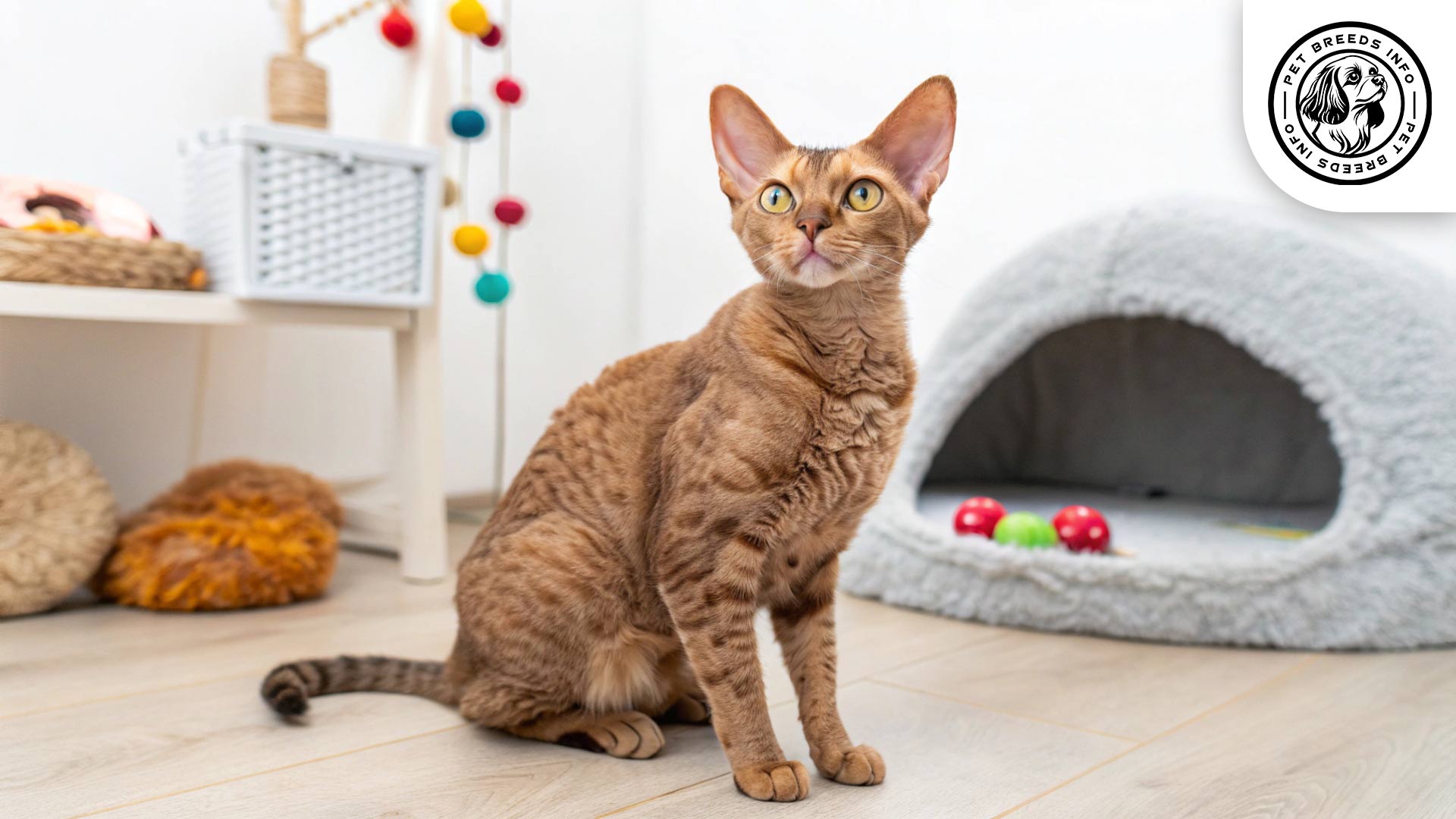
Care and Maintenance Requirements
The German Rex is a lively yet moderately active breed that benefits greatly from regular playtime to stay physically healthy and mentally sharp. Engaging them with interactive toys, puzzle feeders, or short play sessions like chasing a laser pointer can keep their curious minds stimulated and their bodies fit, reflecting their playful European heritage.
This breed adjusts effortlessly to indoor living, making them a perfect fit for apartments or smaller homes. While they don’t demand vast spaces, providing a few safe areas to climb or explore, such as a cat tree or window perch, taps into their inquisitive nature and enhances their daily routine.
The German Rex’s unique curly coat sheds very little, a trait that makes grooming simple and low-maintenance. Brushing their coat once a week with a gentle brush keeps it soft and smooth, removes loose hairs, and fosters a closer bond with your cat, all while preserving the breed’s signature plush texture.
Read More: Asian Cat
Diet and Nutrition
A balanced diet of high-quality dry or wet cat food is recommended for the German Rex. Protein-rich meals support its energetic lifestyle.
The breed generally does not have specific dietary restrictions, but a vet can help determine any special needs based on individual health conditions.
Avoid feeding raw fish, chocolate, onions, garlic, and excessive dairy, as these can be harmful to cats.
Portion sizes depend on the cat’s weight and activity level, but typically two meals per day are sufficient.
Health and Common Medical Issues
The German Rex is generally a healthy breed but may be prone to common feline ailments such as dental issues and obesity if not properly managed.
As a breed with a fine coat, they may have slightly sensitive skin and require protection from extreme temperatures.
The breed has an average lifespan of 12-15 years with proper care and regular veterinary check-ups.
Routine vaccinations, deworming, and annual health checks are essential for their long-term well-being.
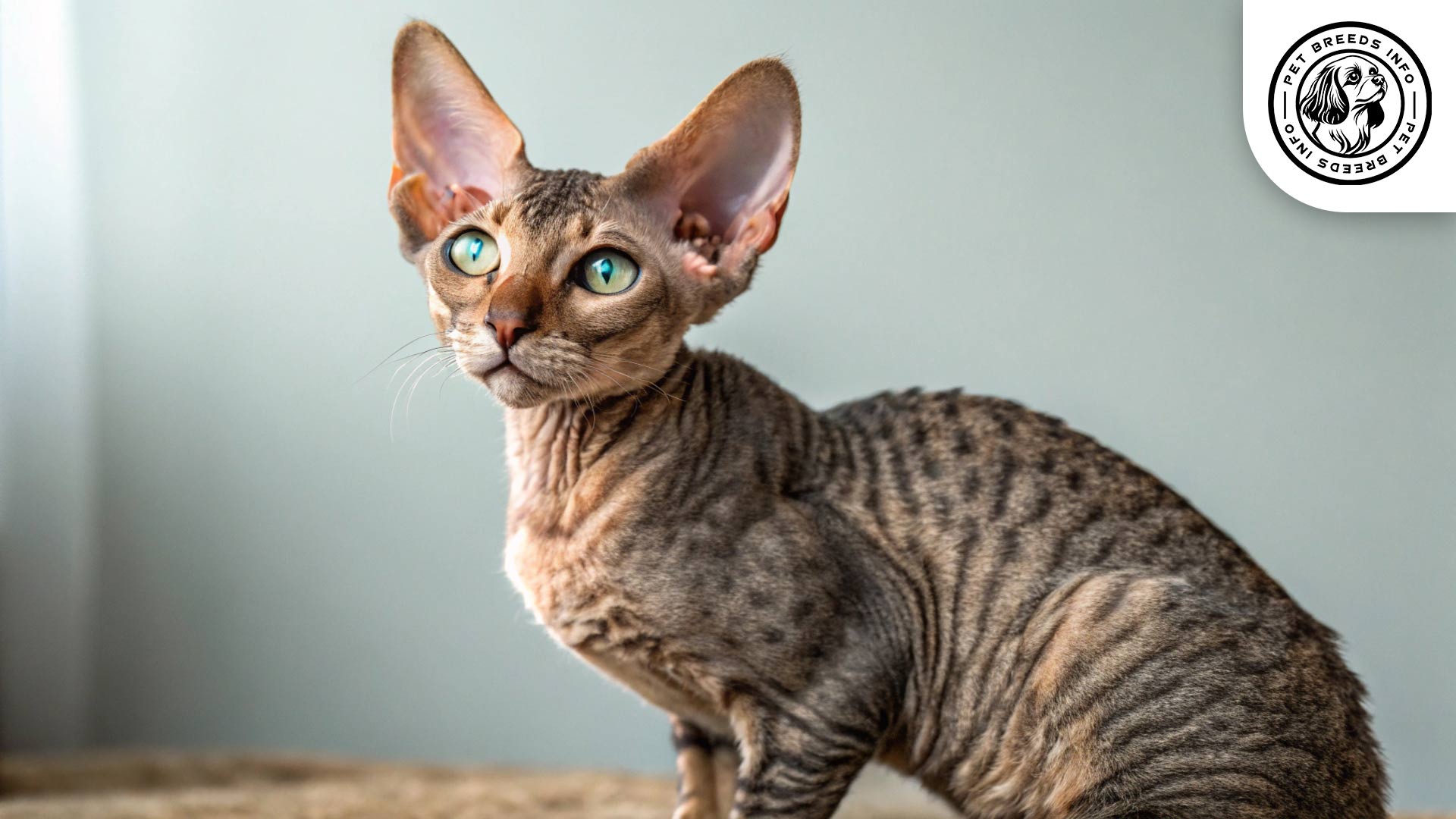
Training and Behavior Management
The German Rex, known for its sharp intelligence and strong desire to connect with people, is a highly trainable cat breed that thrives on engaging with its owners. With their keen minds and sociable nature, these cats quickly pick up new skills when exposed to early socialization and positive reinforcement techniques, such as rewarding good behavior with treats or heartfelt praise. Interactive training methods, like clicker training, work particularly well with the German Rex, as they enjoy the mental stimulation and respond enthusiastically to clear, consistent cues. By establishing a predictable routine and setting firm yet gentle boundaries from kittenhood, owners can foster a well-mannered, confident pet that adapts seamlessly to household life.
Interaction with Other Animals and Humans
The German Rex is a deeply affectionate and gentle cat, making it an excellent choice for families with children who seek a loving and patient pet. Its calm and friendly demeanor allows it to form strong bonds with kids, while its playful nature adds joy to family life. When introduced thoughtfully and socialized early, this breed gets along wonderfully with other pets, fostering harmony in multi-pet households. Adaptable and versatile, the German Rex suits both bustling families and solo owners, flourishing in environments filled with care and attention. Though it cherishes affectionate moments with its humans, this breed also values occasional independence, striking a perfect balance by enjoying quiet time without needing constant interaction.
Read More: Manx Cat
Price and Availability
The cost of a German Rex kitten can vary significantly based on factors such as the breeder’s reputation, geographic location, and the kitten’s lineage, typically falling within a price range of $500 to $1,000. For those considering bringing a German Rex into their home, it’s wise to seek out reputable breeders who prioritize ethical breeding practices, ensuring the kittens are healthy and come with comprehensive health records and genetic screenings. Alternatively, adopting from animal shelters or rescue organizations is a wonderful option, offering a loving home to a cat in need, though finding a German Rex in such settings may be less common due to the breed’s rarity. Exploring both avenues allows prospective owners to make informed choices while supporting responsible pet acquisition.
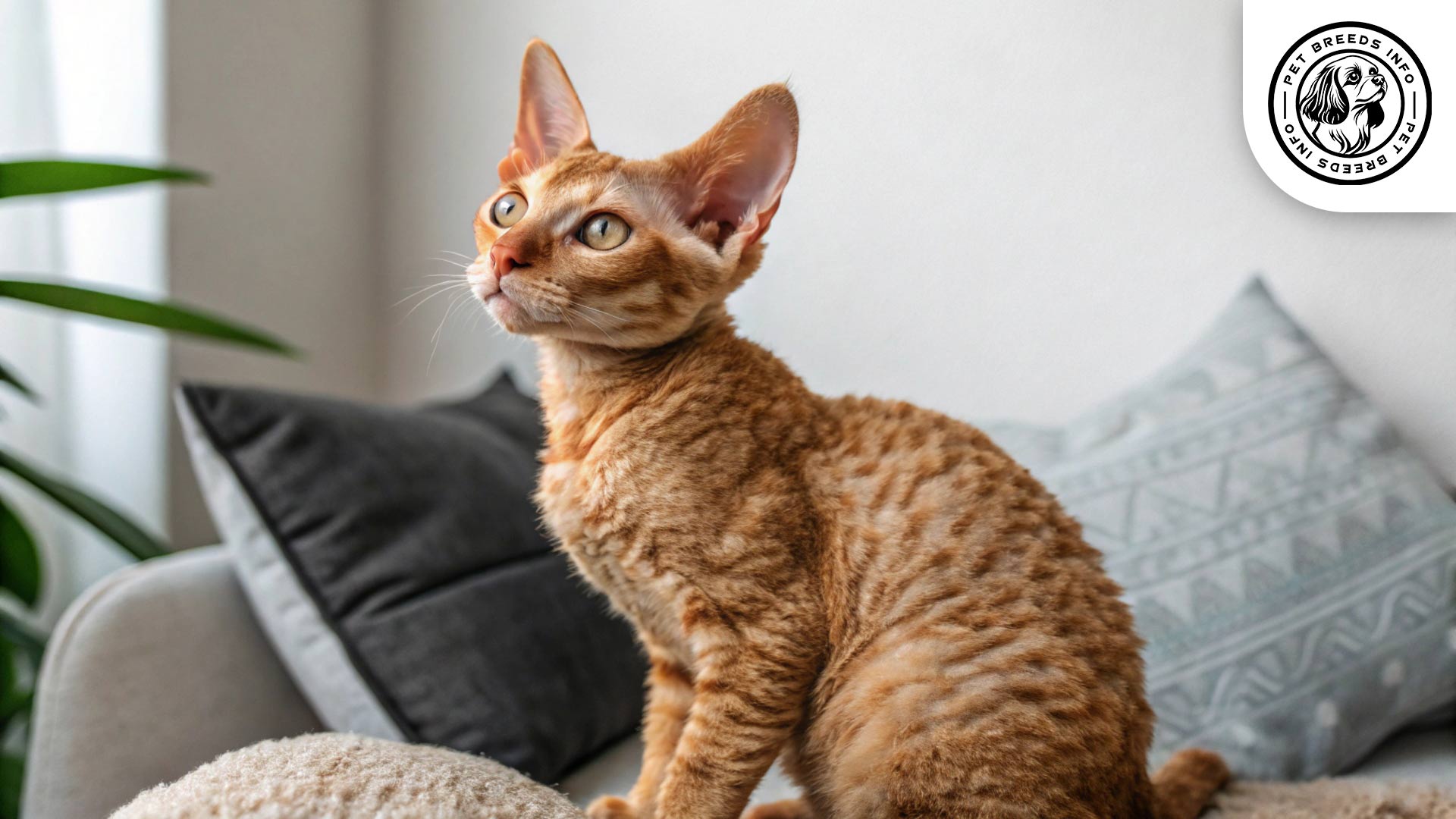
Conclusion and Final Thoughts
The German Rex is a delightful breed suited for various households, from singles to families with children and other pets.
It thrives in an affectionate and interactive environment where it receives love and attention.
Prospective owners should consider the breed’s need for companionship, regular playtime, and moderate grooming requirements.
If you’re looking for an intelligent, affectionate, and playful companion, the German Rex may be the perfect addition to your home.
FAQ
Are German Rex cats hypoallergenic?
While no cat breed is truly hypoallergenic, the German Rex’s short, curly coat and minimal shedding may make it a better option for some allergy sufferers. However, individual reactions can vary.
How often do German Rex cats need grooming?
German Rex cats require minimal grooming. Weekly brushing to maintain their coat’s texture and regular nail trimming, ear cleaning, and dental hygiene are essential.
Are German Rex cats good with children and other pets?
Yes, German Rex cats are known for their affectionate and gentle nature. They typically get along well with children and other pets, especially when properly socialized from a young age
What is the average lifespan of a German Rex cat?
With proper care and regular veterinary check-ups, German Rex cats have an average lifespan of 12-15 years.
What type of diet is best for a German Rex cat?
A balanced diet of high-quality dry or wet cat food is recommended. Protein-rich meals are essential to support their energetic lifestyle. It is important to avoid feeding them foods that can be toxic to cats, such as chocolate, onions, and garlic.
